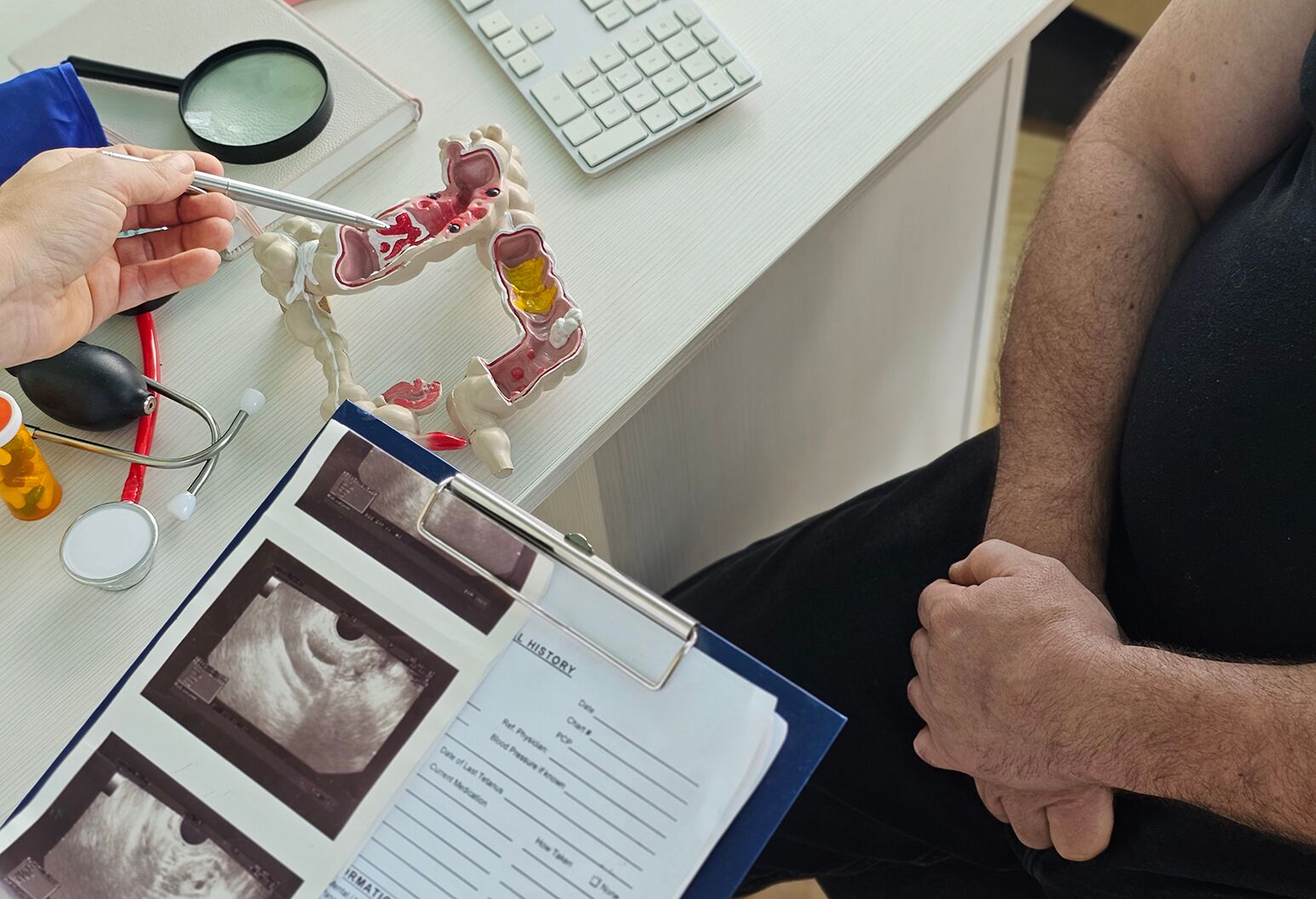digestive health
The No-Nonsense Guide To Norovirus

A gastroenterologist shares what you need to know about the crucial cancer screening tool.
4 min read
For many, the word “colonoscopy” conjures up images of daunting preparation, icky discomfort, and a lot of uncertainty. But this essential health screening could literally be a lifesaver. So, as a gastroenterologist, I’d like to remove some of the mystery and give you the straight facts on what you can expect. You just might realize that it’s not as intimidating as it seems.
Before we get into the nitty-gritty of the procedure, let’s address the big question. While a colonoscopy is the standard screening tool for colon cancer, it's also recommended for those with troubling symptoms like unexplained weight loss, changes in bowel habits, rectal bleeding, or a family history of colon cancer. If you’re 45 or older, or experiencing any of these symptoms, it’s time to talk to your doctor about scheduling one.
We won’t sugarcoat it—prepping for a colonoscopy isn’t exactly pleasant. But it’s a crucial step to ensure the doctor gets a clear view of your colon. You’ll be asked to follow a special diet and take a strong laxative the day before your procedure to fully empty your bowels. Yes, that part is often the most dreaded, but it’s temporary. You’ll spend most of the evening near the bathroom, but the worst will be over by the time you wake up.
Stay hydrated with clear liquids like broth, water, and electrolyte drinks (not red or purple). This can help make the process a bit easier on your body.
By providing your email address, you agree to receive email communication from The Well.
On the morning of your colonoscopy, you’ll check in and be taken through the usual medical formalities—filling out forms, reviewing your medical history, and meeting your anesthesiologist. It’s essential to have someone drive you home since you’ll be under anesthesia and won’t be able to drive post-procedure.
Once you’ve changed into your hospital gown (yes, all clothes off, including underwear), you’ll get settled on a stretcher. Fancy treaded socks and a warm blanket will help make things feel a bit more comfortable. The medical team will place an IV in your arm to administer the anesthesia, and before you know it, you’ll be ready to go. Most people report that this part is way less scary than they imagined.
You’ll then be positioned on your left side, which is more comfortable and better for circulation. After you’re sedated, the gastroenterologist will insert a flexible tube called a colonoscope into your rectum. This scope has a light and camera on the end to navigate through your colon and look for any abnormalities like polyps or signs of cancer. You will be asleep for the whole thing, and the entire procedure typically lasts between 15 and 30 minutes.
Once the procedure is done, you’ll be taken to a recovery area where you’ll wake up from the anesthesia. Many report feeling like they’ve had a really good sleep. Some patients may feel a little disoriented or bloated from the gas used during the procedure, but this is temporary and completely normal. Passing gas in the recovery room is also expected—and encouraged—since it helps relieve any discomfort.
The good news? You’ll get some results right away. Your doctor will come in and discuss any findings, like whether polyps were removed or if any additional tests are needed.
Once you’ve fully woken up, you’ll be discharged with instructions on what to expect over the next few days. Some mild cramping or bloating may persist for a few hours, but otherwise, most patients feel back to normal pretty quickly. And yes, you can finally eat a meal! Light foods like soups, toast, or crackers are a good start.
If your doctor removed any polyps, they’ll recommend when you should return for your next screening. This could be anywhere from 3 to 10 years, depending on the number and size of polyps. If no polyps were found, you’re likely in the clear for several years.
One of the most reassuring parts of a colonoscopy is that the results process is clear and prompt. If polyps are found and removed, they’ll be sent to pathology for testing, and you should hear back within a week. Your doctor or someone from their office will follow up with any further recommendations or instructions.
While the thought of a colonoscopy can feel intimidating, understanding what happens at every step can help reduce anxiety and make the process much smoother. It’s a crucial screening tool that can prevent colon cancer, and once it’s over, you’ll feel relieved knowing you’re safeguarding your health.
The Well is Northwell Health’s commitment to the future of health care. In this time of information overabundance, much of which is inaccurate, unhelpful, or even difficult to understand, Northwell Health is on a mission to make a difference as an honest, trusted, and caring partner. The site connects with consumers to provide them with personalized content that reduces their stress, makes them laugh, and ultimately feel more confident and capable on their healthcare journey.